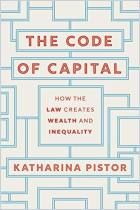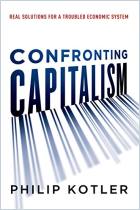加入 getAbstract 阅读摘要

加入 getAbstract 阅读摘要
Ezra Klein, Katharina Pistor and Rogé Karma
A Guide to the ‘Legal Fictions’ That Create Wealth, Inequality and Economic Crises
The legal scholar Katharina Pistor examines the hidden legal layer propping up our modern economic system.
The New York Times, 2023
看看什么内容?
Capital is a function of laws that assign it specific characteristics and privileges, both good and bad.
Recommendation
Laws enable economic progress and prosperity, endowing assets with specific rights that allow their owners to profit. Yet the very laws that produce economic well-being also leave many behind in society, argues professor Katharina Pistor in this enlightening episode of The Ezra Klein Show podcast hosted by senior editor Rogé Karma. Their conversation highlights how, given that law can confer distinct privileges on assets, it can also affect positive social change by creating a more level playing field. Executives, investors, and students of law and economics will find this a thought-provoking discussion.
Summary
About the Podcast
Professor of comparative law Katharina Pistor is the director of the Center on Global Legal Transformation at Columbia University. The Ezra Klein Podcast showcases interviews with leaders in politics and media.

























Comment on this summary